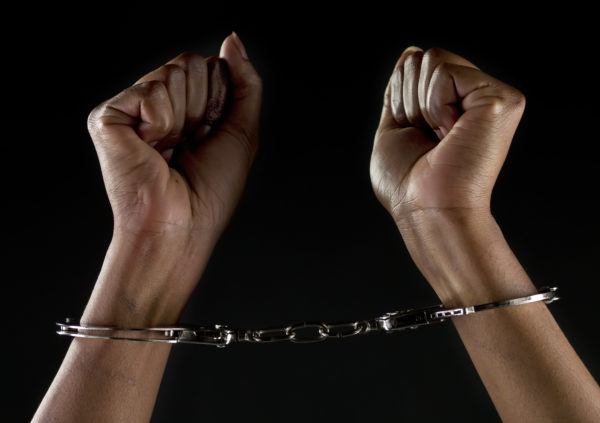Utah and at least three other states are joining 22 others in banning the practice of shackling pregnant women as they give birth.
What was once common in the U.S. — to shackle pregnant women when they deliver their babies — has now become less common. The Associated Press reported March 12 that women speaking out about the dangers of the practice has caused 22 states to pass laws against it over the past 20 years.
This year, Utah will be one of the four total states, including Ohio, that will look to institute laws against chaining women when they’re in labor.

Black women make up about 29 percent of women behind bars. (Getty Images)
“For me, it’s just a fundamental issue of dignity,” said sponsor of the Utah measure Democratic state Rep. Stephanie Pitcher to the AP. “A woman deserves dignity in childbirth.”
A 2018 report from the Prison Policy Initiative revealed women’s incarceration rates have grown at double that of men’s incarceration the past two decades. Additionally, Black women ”are disproportionately subject to incarceration,” and they make up about 29 percent of incarcerated women.
In Utah, the state officially changed its policy on shackling women in 2015, but there is still no law that prohibits the practice.
“What are the odds that, without specific training, your average corrections officer knows every policy?” said Lauryn King, a public-policy Ph.D. student at George Washington University who developed a state-by-state analysis of laws on the issue.
Pitcher, who has heard this year from several state doctors who have treated women who gave birth to babies while shackled, is pushing a bill that would apply to local jails and prisons. It has already passed the state House and is being considered by the Senate.
Amy Fettig, deputy director of the National Prison Project at the ACLU, told the AP restraining prisoners is meant for safety during medical procedures.
However, she said things are different for pregnant women.
Keeping them still during childbirth boosts the chance of getting potentially life-threatening health risks tied to delivering a baby, such as blood clots. And in the event of an emergency, it makes it more difficult to move the woman. Breast-feeding the baby after birth also can be challenging if the woman is restrained.
On top of that, the demands of labor mean it’s unlikely women would attempt to escape during that time, and Fettig said there are no documented incidents of women fleeing jails or prisons while welcoming their child into the world.

